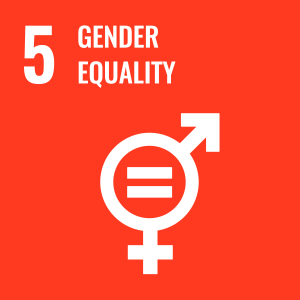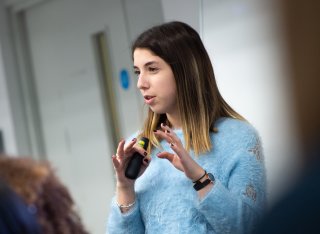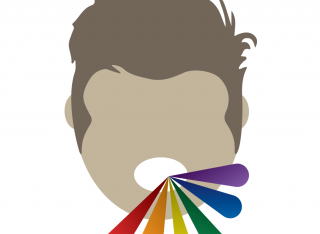
Dr Fabio Fasoli
Pronouns: he/him
Academic and research departments
School of Psychology, Faculty of Health and Medical Sciences, Institute for Sustainability.About
Biography
I received my PhD in 2011 from the University of Trento (Italy). After that, I held postdoctoral fellowships at CITEC/University of Bielefeld, the University of Padua, ISCTE-IUL, and the University of Milano-Bicocca. In October 2016, I joined the University of Surrey as a Marie Sklodowska-Curie Fellow and have been here ever since. I am the Programme Leader for the Social Psychology MSc, the co-director of the Sex, Gender, and Sexualities Research Centre, and the current Chair of the University Rainbow Network. I am also the Secretary of the International Association of Language and Social Psychology (IALSP)
Areas of specialism
University roles and responsibilities
- Social Psychology MSc Programme Leader
- Professional Training Year Visiting Tutor
- Institue for Sustainability Fellow
- Personal Tutor
- School of Psychology EDI Lead
Affiliations and memberships
News
In the media
ResearchResearch projects
2025-2027
Gender-based violence continues to affect countless women, often perpetuated by harmful stereotypes and misconceptions. In a creative twist, some survivors are using humour to challenge these narratives. Gender-based violence subversive humour (GVSH) gives victims a platform to reclaim control and spark conversation through stand-up comedy and personal jokes. Supported by the Marie Skłodowska-Curie Actions programme, the HUMOR-GV project explores this emerging form of expression, investigating how GVSH is crafted, delivered, and received by audiences. The project also looks at how it helps deconstruct myths, raises awareness, and supports survivors’ well-being. By offering new insights, HUMOR-GV aims to promote social change and create a more inclusive society where humour helps dismantle the stigma surrounding gender-based violence. MSCA Research Fellow: Andres Riquelme
2024-2025 The project aims to investigate challenges and opportunities encountered by underrepresented individuals during the funding application preparation process, particularly focusing on Narrative CVs. Unlike traditional academic CVs, narrative CVs use a narrative approach to highlight the applicants’ achievements and strengths, aiming to reduce evaluation biases. The project has four main objectives.
2024-2025 This project is focused on enhancing LGBTQ+ inclusion within STEM and energy research.
When voice interplays with the message. Linguistic strategies to counteract voice-based stereotyping and discrimination2021 - 2022 This project was funded by European Association of Social Psychology (PI: Fabio Fasoli, Co-PI: Magdalena Formanowicz).
Humour as a Way to Counteract the Effects of Sexual Objectification2020-2021 - This project is funded by the British Academy Leverhulme Small Grant. It aims to extend previous literature and test whether humour can positively affect women's body satisfaction and eating behaviours.
The World Needs Hope2020–2021 British Academy – Leverhulme Small grant: PI: Sophie Russell, Co-PI: Cohen-Chen, S., Rusconi, P & Fasoli, F.
Beyond Straight Talking: The Consequences of Vocal Cues to Sexual Identity for Modern Prejudice - MarieCurie Research Project 2016-2018
Research collaborations
Andrea Carnaghi (University of Trieste)
Francesca Guizzo (University of Padova)
David Frost (University College London)
Magdalena Formanowicz (University of Social Sciences and Humanities in Warsaw)
Marko Dragojevic (University of Kentucky)
Peter Hegarty (Open University)
Research projects
2025-2027
Gender-based violence continues to affect countless women, often perpetuated by harmful stereotypes and misconceptions. In a creative twist, some survivors are using humour to challenge these narratives. Gender-based violence subversive humour (GVSH) gives victims a platform to reclaim control and spark conversation through stand-up comedy and personal jokes. Supported by the Marie Skłodowska-Curie Actions programme, the HUMOR-GV project explores this emerging form of expression, investigating how GVSH is crafted, delivered, and received by audiences. The project also looks at how it helps deconstruct myths, raises awareness, and supports survivors’ well-being. By offering new insights, HUMOR-GV aims to promote social change and create a more inclusive society where humour helps dismantle the stigma surrounding gender-based violence. MSCA Research Fellow: Andres Riquelme
2024-2025 The project aims to investigate challenges and opportunities encountered by underrepresented individuals during the funding application preparation process, particularly focusing on Narrative CVs. Unlike traditional academic CVs, narrative CVs use a narrative approach to highlight the applicants’ achievements and strengths, aiming to reduce evaluation biases. The project has four main objectives.
2024-2025 This project is focused on enhancing LGBTQ+ inclusion within STEM and energy research.
2021 - 2022 This project was funded by European Association of Social Psychology (PI: Fabio Fasoli, Co-PI: Magdalena Formanowicz).
2020-2021 - This project is funded by the British Academy Leverhulme Small Grant. It aims to extend previous literature and test whether humour can positively affect women's body satisfaction and eating behaviours.
2020–2021 British Academy – Leverhulme Small grant: PI: Sophie Russell, Co-PI: Cohen-Chen, S., Rusconi, P & Fasoli, F.
Beyond Straight Talking: The Consequences of Vocal Cues to Sexual Identity for Modern Prejudice - MarieCurie Research Project 2016-2018
Research collaborations
Andrea Carnaghi (University of Trieste)
Francesca Guizzo (University of Padova)
David Frost (University College London)
Magdalena Formanowicz (University of Social Sciences and Humanities in Warsaw)
Marko Dragojevic (University of Kentucky)
Peter Hegarty (Open University)
Supervision
Postgraduate research supervision
PhD Students
- Frey Turner (Ongoing) - Exploring Co-Creation of Machine Learning Tools for Gender-Affirming Voice Care
- Rodrigo Figueiredo (Ongoing) - Minority Stress Among Transgender Youth: The Pivotal Role of Parental Relationships
- Silvia Miele (Ongoing) - Religious discrimination in the UK, Spain and Italy: how do people reason about endorsing rights to minorities?
- Matteo Masi - (Completed) Facial and vocal cues in cross-modal impression updating
- Giulia Sala - (Completed) The Inequality Trap: psychological antecedents of the behavioural intentions to reduce income inequality and corruption
- Federica Case - (Completed) The role of agency and communion in mentoring
PsycD Students
- Prerna Abbi (Ongoing) - Sense of belonging among sexual and ethnic minorities
- Brigitte Boelen (ongoing) - Intersectionality: Age and sexual orientation
- Gagan Bangar (Completed) - Discussing Sexuality in Therapy
- Annie Stevenson (Completed) - Desire for muscularity and mental health
Teaching
- PSY3117/PSYM141 - Social Psychology of Language and Communication (Module Convener, 2019-present)
- PSYM013 - Social Change and Influence (Module Convener, 2021-present)
- PSY0001 - Psychology in the Real World (Contributing Lecturer, 2020- present)
- SOC2108 - Communication in Society (Contributing Lecturer, 2024- present)
Previously,
- PSY2016 - Social Psychology with Research Methods 2 (Module Convener, 2018-2022)
- PSY3095 - General Psychology (Contributing Lecturer, 2018-2024)
- PSYM013 - Social Change and Influence (Contributing Lecturer, 2018-2021)
- PSYM093 - Fundamental Concepts in Social Psychology with Research Methods (Module Convener,2018-2022)
Sustainable development goals
My research interests are related to the following:




Publications
Highlights
2025
Fasoli, F., Hopkins-Doyle, A., & Guizzo, F. (2025). Thank you for sharing: Body-positive and humour parody images increase women’s body satisfaction and predict collective action intentions via gratitude. Sex Roles, 91, 48.
Case, F., Fasoli, F., Sczesny, S., & Tennenbaum, H. (in press). Mentoring Preferences: The Role of Agency and Communion in Deep-Level Similarity and Perceived Workplace Norms. Journal of Applied Social Psychology.
Fasoli, F. & Teasdale, E. (2025). Do they sound gay? Positive discrimination in the promotability of gay-sounding speakers. Social Psychology Bulletin, 20, e13399.
Russell, P. S., Hepper, E. G., Fasoli, F., Hopkins-Doyle, A., & Boone, F. (2025). Examining the dynamic impact of emotional apologies on forgiveness. Emotion.
Sulpizio, S., Fasoli, F., Lapomarda, G., & Vespignani, F. (2025). Does sounding ‘Gay’ or ‘Straight’ affect how we understand language? Sentence comprehension is regulated by the speaker's perceived sexual orientation. Journal of Neurolinguistics, 74, 101248.
2024
Fasoli, F., & Formanowicz, M. (2024). Can agentic messages help? Linguistic strategies to counteract voice‐based sexual orientation discrimination. British Journal of Social Psychology.
Masi, M., Mattavelli, S., Fasoli, F., & Brambilla, M. (2024). Multimodal Cues to Change Your Mind: The Intertwining of Faces, Voices, and Behaviors in Impression Updating. Personality and Social Psychology Bulletin.
Sulpizio, S., Günther, F., Badan, L., Basclain, B., Brysbaert, M., Chan, Y.L., Ciaccio, L.A., Dudschig, C., Duñabeitia, J.A., Fasoli, F. and Ferrand, L., (2024). Taboo language across the globe: A multi-lab study. Behavior Research Methods, pp.1-20
Klysing, A., Braun, M., Buscicchio, G., Jacobs, C., Formanowicz, M., & Fasoli, F. (2024). The Use and Perception of Reclaimed Group Labels for Lesbian Women and Gay Men. Journal of Language and Social Psychology, 43(3), 326-352.
Bornioli, A., Hopkins-Doyle, A., Fasoli, F., Faccenda, G., Subiza-Pérez, M., Ratcliffe, E., & Beyazit, E. (2024). Sex and the city park: the role of gender and sex in psychological restoration in urban greenspaces. Journal of Environmental Psychology, 102476.
Fasoli, F., & Constantinou, D. (2024). Does body positivity work for men as it does for women? The impact of idealized body and body positive imagery on body satisfaction, drive for thinness, and drive for muscularity. Acta Psychologica, 243, 104126
Fasoli, F., Frost, D. M., & Serdet, H. (2024). How voice transition and gender identity disclosure shape perceptions of trans men in the hiring process. Gender, Work & Organization, 31(1), 36-58.
Bianchi, M., Carnaghi, A., Fasoli, F., Rusconi, P., & Fantoni, C. (2024). From self to ingroup reclaiming of homophobic epithets: A replication and extension of Galinsky et al.'s (2013) model of reappropriation. Journal of Experimental Social Psychology, 111, 1-8.
2023
Hegarty, P., & Fasoli, F. (2023). Sounds Like There Was No Sexual Orientation Discrimination? Attributions to Discrimination on the Basis of Auditory Gaydar. Journal of Homosexuality. Advanced online publication.
Graf, S., Rubin, M., Assilamehou‐Kunz, Y., Bianchi, M., Carnaghi, A., Fasoli, F., ... & Sczesny, S. (2023). Migrants, asylum seekers, and refugees: Different labels for immigrants influence attitudes through perceived benefits in nine countries. European Journal of Social Psychology. Advanced online publication.
Frackowiak, M., Russell, P. S., Rusconi, P., Fasoli, F., & Cohen‐Chen, S. (2023). Political orientation, trust and discriminatory beliefs during the COVID‐19 pandemic: Longitudinal evidence from the United Kingdom. British Journal of Social Psychology. Advanced online publication.
Sturaro, S., Suitner, C. & Fasoli, F. (2023). When is self-labeling seen as reclaiming? The role of user and observer’s sexual orientation in processing homophobic and category labels’ use. Journal of Language and Social Psychology. https://doi.org/10.1177/0261927X231173147
Fasoli, F., Ogden, J., & Johnson, S. (2023). Body Positivity or Humorous Parody? The Impact of Instagram Imagery on Body Image Concerns. Journal of Psychology: Interdisciplinary and Applied.https://doi.org/10.1080/00223980.2023.2198686
Frackowiak, M., Russell, P. S., Rusconi, P., Fasoli, F., & Cohen‐Chen, S. (2023). Political orientation, trust and discriminatory beliefs during the COVID‐19 pandemic: Longitudinal evidence from the United Kingdom. British Journal of Social Psychology.
Fasoli, F., Dragojevic, M., Rakić, T., & Johnson, S. (2023). Voice matters: Social categorization and stereotyping of speakers based on sexual orientation and nationality categories. Language & Communication, 90, 114-128. https://doi.org/10.1016/j.langcom.2023.02.001
Fasoli, F., Dragojevic, M., & Rakic, T. (2023). When voice signals nationality and sexual orientation: Speakers’ self-perceptions and perceived stigmatisation. Psychology of Language and Communication. https://doi.org/10.58734/plc-2023-0004
Di Michele, D., Guizzo, F., Canale, N., Fasoli, F., Carotta, F., Pollini, A., & Cadinu, M. (2023). # SexyBodyPositive: When Sexualization Does Not Undermine Young Women’s Body Image. International Journal of Environmental Research and Public Health, 20(2), 991. https://doi.org/10.3390/ijerph20020991
Russell, P. S., Frackowiak, M., Cohen-Chen, S., Rusconi, P., & Fasoli, F. (2023). Induced gratitude and hope, and experienced fear, but not experienced disgust, facilitate COVID-19 prevention. Cognition and Emotion, 37(2), 196-219. https://doi.org/10.1080/02699931.2022.2157377
Masi, M., Mattavelli, S., Fasoli, F. & Brambilla, M. (2022). When faces and voices come together: Face width-to-height ratio and voice pitch contribute independently to social perception. European Journal of Social Psychology, 53(2), 323-335. https://doi.org/10.1002/ejsp.2905
Fontanele, A. B., de Sousa, L., & Fasoli, F. (2023). Who does discriminate against gay-sounding speakers? The role of prejudice on voice-based hiring decisions in Brazil. Journal of Language and Social Psychology, 42(1), 119-130.
2022
Masi, M. & Fasoli, F. (2022). When fluency matters: The interplay between categorisation fluency and gender atypicality on gaydar judgments. Journal of Language and Social Psychology, 41(6),746-759.
Fasoli, F., Ogden, J., & Johnson, S. (2022). The relationship between humour and women’s body image concerns and eating behaviours. Humor, 35(4), 531-552. https://doi.org/10.1515/humor-2022-0028
Galdi, S., Guizzo, F., & Fasoli, F. (2022). Media representation matters: The effects of exposure to counter-stereotypical gay male characters on heterosexual men’s expressions of discrimination. Group Processes and Intergroup Relations. Advanced online publication.
Haji, R. & Fasoli, F. (2022). Predicting and changing attitudes toward same-gender parenting: Informational influence, parasocial contact, and religious fundamentalism. Journal of GLBT Family Studies., 18(2), 119-13.4
Fasoli, F., Maass, A., & Berghella, L. (2023). Who has a better auditory gaydar? Sexual orientation categorization by heterosexual and lesbian, gay and bisexual people. Journal of Homosexuality, 70(5), 876-899.
Carnaghi, A., Bianchi, M., Rusconi, P., Fasoli, F., Coladonato, R., & Hegarty, P. (2022). No country for old gay men: Age and sexuality category intersection renders older gay men invisible. Group Processes and Intergroup Relations, 25(4), 964-989.
2021
Masi, M., Mattavelli, S., Fasoli, F., & Brambilla, M. (2021). Cross‐modal impression updating: Dynamic impression updating from face to voice and the other way around. British Journal of Social Psychology, 61(3), 808-825
Painter, D., Fasoli, F., & Sulpizio, S. (2021). The impact of stimuli length and analytic method on auditory ‘gaydar’ research. Journal of Voice. Advanced online publication.
Vacchini, S., Fasoli, F., & Volpato, C. (2021). You cannot get into my taxi! Perceptions of a COVID-19 based rejection episode reported in newspapers. Journal of Language and Social Psychology, 40, 677-689.
Guizzo, F., Canale, N., & Fasoli, F. (2021). Instagram Sexualization: When posts make you feel dissatisfied and wanting to change your body. Body Image, 39, 62-67.
Fasoli, F., Hegarty, P., & Frost, D. (2021). Stigmatisation of gay-sounding’ voices: The role of heterosexual, lesbian and gay Individuals’ essentialist beliefs. British Journal of Social Psychology. Advanced online publication.
Gorczynski, P., & Fasoli, F. (2021). Loneliness in Sexual Minority and Heterosexual Individuals: A Comparative Meta-analysis. Journal of Gay & Lesbian Mental Health. Advanced online publication.
Ronchetti, S., Fasoli, F., Rusconi, P., & Tumino, M. (Accepted for publication). I Feel Your Eyes On Me. How perceived control affects self-objectification and body consciousness in women. Psicologia Sociale.
2020
Gorczynski, P., & Fasoli, F. (2020). LGBTQ+ focused mental health research strategy in response to COVID-19. The Lancet. Psychiatry, 7(8), e56.
Dragojevic, M., Fasoli, F., Cramer, J., & Rakić, T. (2020). Toward a Century of Language Attitudes Research: Looking Back and Moving Forward. Journal of Language and Social Psychology, 40(1) 60–79.
Daniele, M., Fasoli, F., Antonio, R., Sulpizio, S., & Maass, A. (2020). Gay voice: Stable marker of sexual orientation or flexible communication device?. Archives of Sexual Behavior, 49(7), 2585-2600.
Daniele, M., Fasoli, F., & Johnson, S. (2020). Coming out as a factor of voice change: From sounding straight to sounding Gay. Psicologia Sociale, 15, 33-52.
Fasoli, F., & Hegarty, P. (2020). A Leader Doesn’t Sound Lesbian!: The Impact of Sexual Orientation Vocal Cues on Heterosexual Persons’ First Impression and Hiring Decision. Psychology of Women Quarterly, 44(2), 234-255.
Fasoli, F., Maass, A., Karniol, R., Antonio, R., & Sulpizio, S. (2020). Voice Changes Meaning: The Role of Gay-Versus Straight-Sounding Voices in Sentence Interpretation. Journal of Language and Social Psychology, 39 (5-6), 653-677
Fasoli, F., & Maass, A. (2020). The Social Costs of Sounding Gay: Voice-Based Impressions of Adoption Applicants. Journal of Language and Social Psychology, 39 (1), 112-131.
Sulpizio, S., Fasoli, F., Antonio, R., Eyssel, F., Paladino, M. P., & Diehl, C. (2020). Auditory Gaydar: Perception of Sexual Orientation Based on Female Voice. Language and Speech. 63 (1), 184-206.
Daniele, M., Fasoli, F., & Johnson, S. (2020). Coming out as a factor of voice change: From sounding straight to sounding gay. Psicologia sociale, 15(1), 33-52.
Salvati, M., De Cristofaro, V., Fasoli, F., Paolini, D., & Zotti, D. (2020). Introduction to the Special Issue: Sexual prejudice and stereotyping in modern societies. Psicologia sociale, 15(1), 5-14.
2019
Fasoli, F., Hegarty, P., & Carnaghi, A. (2019). Sounding Gay, Speaking as a “Fag”: Auditory Gaydar and the Perception of Reclaimed Homophobic Language. Journal of Language and Social Psychology, 38 (5-6), 798-808.
2018
Fasoli, F., Maass, A., Volpato, C., & Pacilli, M. G. (2018). The (female) graduate: Choice and consequences of women’s clothing. Frontiers in Psychology, 9, 2401.
Fasoli, F., Hegarty, P., Maass, A., & Antonio, R. (2018). Who wants to sound straight? Sexual majority and minority stereotypes, beliefs and desires about auditory gaydar. Personality and Individual Differences, 130, 59-64.
Rodrigues, D., Fasoli, F., Huic, A., & Lopes, D. (2018). Which partners are more human? Monogamy matters more than sexual orientation for dehumanization in three European countries. Sexuality Research and Social Policy, 15(4), 504-515.
Fasoli, F., Maass, A., & Sulpizio, S. (2018). Stereotypical disease inferences from gay/lesbian versus heterosexual voices. Journal of homosexuality, 65(8), 990-1014.
Shepherd, L., Fasoli, F., Pereira, A., & Branscombe, N. R. (2018). The role of threat, emotions, and prejudice in promoting collective action against immigrant groups. European Journal of Social Psychology, 48(4), 447-459.
Fasoli, F., & Maass, A. (2018). Voice and prejudice: The social costs of auditory gaydar. Atlantic Journal of Communication, 26(2), 98-110.
Fasoli, F., Cadinu, M., Carnaghi, A., Galdi, S., Guizzo, F., & Tassara, L. (2018). How do you self-categorize? Gender and sexual orientation self-categorization in homosexual/heterosexual men and women. Personality and Individual Differences, 123, 135-139.
2017
Fasoli, F., Maass, A., Paladino, M. P., & Sulpizio, S. (2017). Gay-and lesbian-sounding auditory cues elicit stereotyping and discrimination. Archives of sexual behavior, 46(5), 1261-1277.
Bianchi, M., Piccoli, V., Lotti, D., Fasoli, F. & Caranghi, A. (2017). The impact of homophobic epithets on gay men's internalized homophobia and body image: The moderation role of coming-out. Journal of Language and Social Psychology, 36, 356-367
Fasoli, F., Mazzurega, M., & Sulpizio, S. (2017). When characters impact on dubbing: The role of sexual stereotypes on voice actor/actress' preferences. Media Psychology, 3, 450-476.
Fasoli, F. (2017). Gay-straight communication. To appear in Nubassum J. & Giles, H. (Eds). Communication: Oxford Research Encyclopaedia.
2016
Fasoli, F., Sulpizio, S., & Maass, A. (2016). Communicating the “invisible”: The case of sexual orientation. To appear in Giles, H. & Maass, E. (Eds). Advances in Intergroup Communication, NY: Peter Lang Publications
Fasoli, F., Paladino, M.P., & Sulpizio, S. (2016). Conosci uomini gay e donne lesbiche? Effetti del contatto sull'omofobia e sull'accettazione dell'omosessualità [I know some homosexuals: An exploratory research on the impact of contact on homophobic prejudice and support for LGBT rights in Italy]. Psicologia Sociale, 11, 263-286. doi: 10.1482/84665
Fasoli, F., Paladino, M.P., Carnaghi, A., Jetten, J., Bastian, B., & Bain, P. (2016). Not just words: Exposure to homophobic epithets leads to dehumanizing and physically distancing homosexuals. European Journal of Social Psychology, 46, 237-248. doi: 10.1002/ejsp.2148
Hunt, C., Fasoli, F., Carnaghi, A., Cadinu, M. (2016). Masculine Self-Presentation and Distancing from Femininity in Gay Men: An Experimental Examination of the Role of Masculinity Threat. Psychology of Men and Masculinity, 17, 108-112.
2015
Fasoli, F., Carnaghi, A., & Paladino, M. P. (2015). Social acceptability of sexist derogatory labels and sexist objectifying labels across contexts. Language Sciences, 52, 98-107. 10.1016/j.langsci.2015.03.003
Sulpizio, S., Fasoli, F. Maass, A., Paladino, M.P., Vespignani, F., Eyssel, F. & Bentler, D. (2015). The sound of voice: Voice-based categorization of speakers' sexual orientation within and across languages. PlosOne 10(7), e0128882 (The first two authors share authorship).
Fasoli, F., Maass, A. & Carnaghi, A. (2015). Labeling and discrimination: Do homophobic epithets foster intergroup bias? British Journal of Social Psychology, 54, 383-393.
2013
Fasoli, F., Paladino, M. P., & Carnaghi, A. (2013). Le conseguenze del linguaggio omofobo sui destinatari e ascoltatori dell'offesa. Psicologia Sociale, 2, 177-192.
Paladino, M.P., Forer, D., Fasoli, F., & Mazzurega, M. (2013). Identità sociale e relazioni intergruppi in Provincia di Bolzano: Risultati della ricerca KOLIPSI. In C. Abel, & C. Vettori (eds), KOLIPSI: Un'analisi del ruolo dei fattori psicosociali nelle competenze linguistiche dei giovani altoatesini. EURAC.
Paladino, M. P., Zaniboni, S., Fasoli, F., Vaes, J., & Volpato, C. (2013). Why did Italians protest against Berlusconi's sexism behavior? The role of sexist beliefs and emotional reactions in explaining women and men's pathway to protest. British Journal of Social Psychology. doi: 10.1111/bjso.12023
Bastian, B., Jetten, J., Chen, H., Radke, H. R. M, Harding, J. F., & Fasoli, F. (2013). Losing our humanity: The self-dehumanizing consequences of social ostracism. Personality and Social Psychology Bulletin, 39, 156-169. doi: 10.1177/0146167212471205
2012
Fasoli, F., Carnaghi, A., & Paladino, M. P. (2012). Gli effetti delle etichette denigratorie sugli spettatori: Il caso degli epiteti omofobi. [Effects of derogatory language: The case of homophobic epithets]. Sistemi Intelligenti, 291-302. DOI: 10.1422/37903
2011
Carnaghi, A., Maass, A., & Fasoli, F. (2011). Eenhancing masculinity by slandering homosexuals: The role of homophobic epithets in heterosexual gender identity, Personality and Social Psychology Bulletin 37, 1655-1665. doi: 10.1177/0146167211424167
Bastian, B., Jetten, J., & Fasoli, F. (2011). Cleansing the soul by hurting the flesh: The guilt reducing effect of pain. Psychological Science, 22, 334-335. doi: 10.1177/0956797610397058











